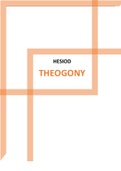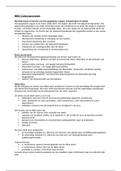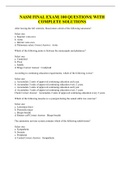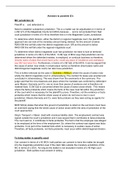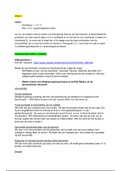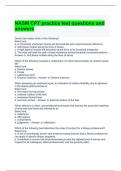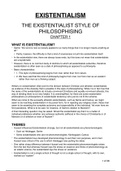College aantekeningen
Class notes Hesiod Theogony 30 pages 9780872201798
- Vak
- Instelling
- Boek
These 30 pages of notes on the Theogony offer a comprehensive and in-depth analysis of the text, highlighting its major themes and key elements. They provide a clear and concise summary of the divine genealogy and the creation of the universe, as well as an examination of the relationships between ...
[Meer zien]
